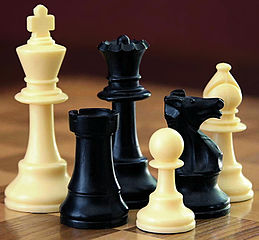Tags
March 9th would have been Bobby Fischer’s 70th birthday, as reported by RÚV and other news sites. Iceland will always be tied to Bobby Fischer thanks to Reykjavík being the site of the 1972 World Chess Championship (Einvígi aldarinnar – Match of the Century) which he won, as well as it being his final resting place. Chess is a popular pastime in Iceland; just recently the 28th Reykjavík Open was held at the Harpa music hall on the Reykjavík waterfront. The article itself has a number of interesting terms to add to your vocabulary, and then we’ll talk a bit about chess 🙂
The title of the article is Bobby Fischer sjötugur – the word used to indicate his age of 70 isn’t the cardinal number sjötíu, but instead an adjective that incorporates the word for a set of ten – tugur. You see this a lot when someone’s age is being reported, or their approximate age. Other examples would be:
tví·tugur (adj) – 20 years old
þrí·tugur (adj) – 30 years old
fer·tugur (adj) – 40 years old
fimm·tugur (adj) – 50 years old
sex·tugur (adj) – 60 years old
However:
átt·ræður (adj) – 80 years old
ní·ræður (adj) – 90 years old
| tug/ur (m) – ten | ||
|---|---|---|
| singular | plural | |
| nom | tugur | tugir |
| acc | tug | tugi |
| dat | tug(i) | tugum |
| gen | tugar | tuga |
From the first paragraph:
“Bobby Fischer, fyrrverandi heimsmeistari í skák, hefði orðið sjötugur í gær. Hann fæddist 9. mars 1943 í Chicago. Fischer varð ungur afburða skákmeistari, hann varð stórmeistari 15 ára. Fischer varð átta sinnum Bandaríkjameistari. Í upphafi áttunda áratugarins var hann langbesti skákmaður heims.”
“Bobby Fischer, former world chess champion, would have been seventy yesterday. He was born March 9, 1943 in Chicago. Fischer was an exceptional young chess master, and became a grandmaster at the age of 15. He was 8-time U.S. champion. At the beginning of the 70s be was the best chess player in the world.”
Another word with tugur is ára·tugur – decade. It is interesting to note that the 70s are referred to as áttundi áratugurinn, so actually the 8th decade. This is also how the -tugur adjectives work, so you will see something like á fertugs aldri referring to someone in their thirties.
More words to help you with the article:
að·dragand/i - antecedents, events leading up to sth ein·vígi - duel, match sigr/a v (acc) (-aði) - win, defeat Svartfjallaland - Montenegro leika lausum hala - to be free dús/a v (-aði) - be compelled to stay
Some general chess-related terms:
| tefl/a v (acc) – play chess | ||
|---|---|---|
| present | past | |
| ég | tefli | tefldi |
| þú | teflir | tefldir |
| það | teflir | tefldi |
| við | teflum | tefldum |
| þið | teflið | teflduð |
| þau | tefla | tefldu |
skák f (-ar, -ir) – chess
kóng/ur m (-s, -ar) – king
drottning f (-ar, -ar) – queen
hrók/ur m (-s, -ar) – rook
biskup m (-s, -ar) – bishop
riddar/i m (-a, -ar) – knight
peð n (-s, -) – pawn
hrókun – castling
In Icelandic, you actually “kill” a piece rather than “capture” it in chess (those Vikings are harsh :)). So we use að drepa:
| drepa (acc) – kill (capture in chess) | ||
|---|---|---|
| present | past | |
| ég | drep | drap |
| þú | drepur | drapst |
| það | drepur | drap |
| við | drepum | drápum |
| þið | drepið | drápuð |
| þau | drepa | drápu |
There is a great page about chess on the Icelandic Wikipedia page: http://is.wikipedia.org/wiki/Skák

